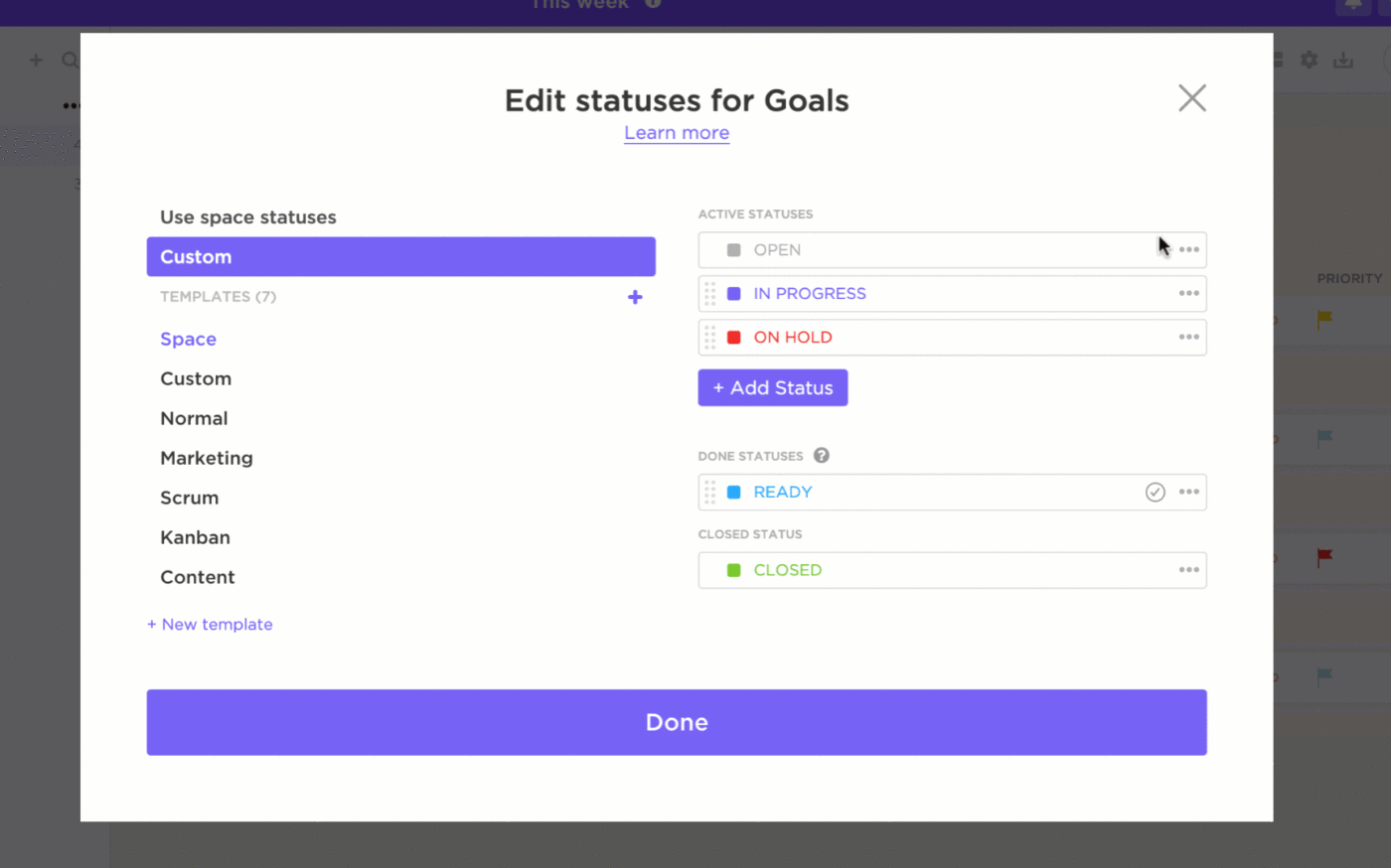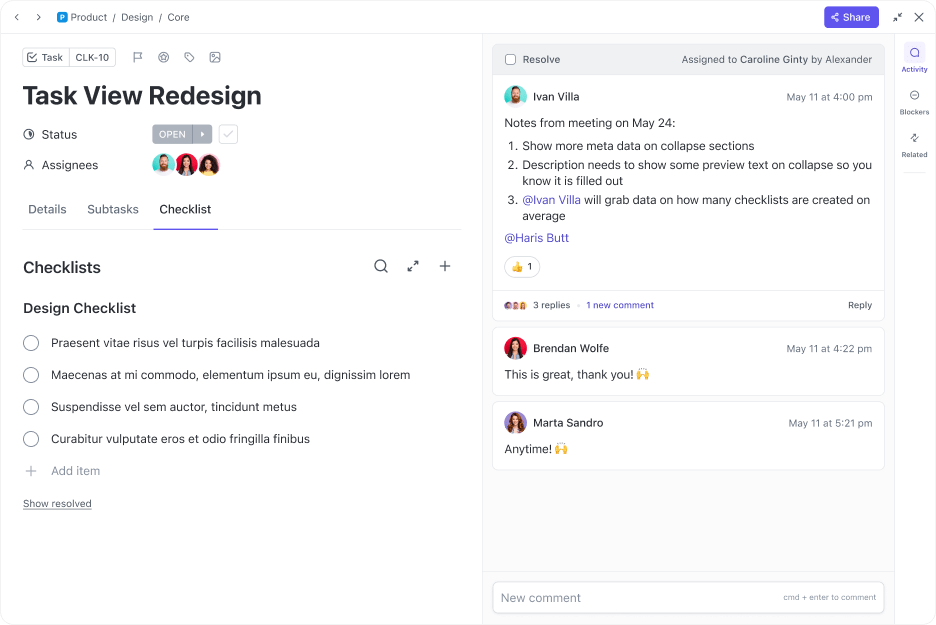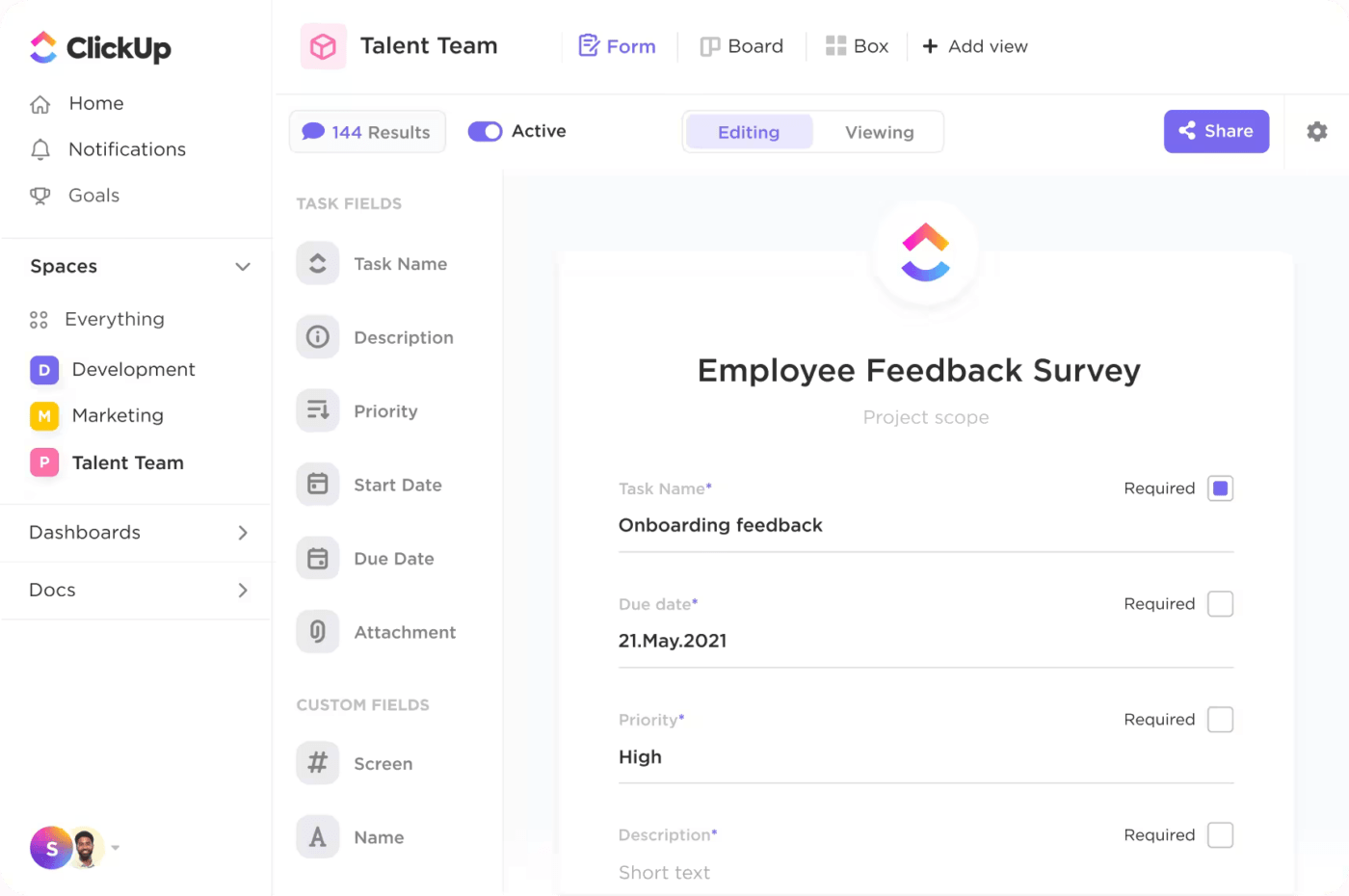How to Hire a Product Manager: Tips, Actionable Insights, and Templates

Sorry, there were no results found for “”
Sorry, there were no results found for “”
Sorry, there were no results found for “”
Product management is a critical function for all organizations–technical or non-technical.
However, for most organizations, product management is still nascent. Plus, 75% of product managers feel product management best practices aren’t being adopted at their entire company properly:
A stellar product manager builds the right environment for developers to innovate. They instill an outcome- and customer-oriented approach into the organization to drive business development. They’re enablers of long-term organic growth.
Today, we’ll show you how to hire a product manager for your growing business. Whether you are a Product Lead or a Chief Product Officer, use this advanced guide to recruit—and onboard—top-tier product managers with the problem-solving abilities to drive business goals.
People often confuse project management and product management, but there’s a world of difference between the two.
While both project management and product management involve planning, executing, and delivering a product, they differ in their focus and scope.
Project management is a process or function that enables organizations to complete a specific project within a set timeframe and budget. For this, project managers must:
Product management, in contrast, is focused on the entire lifecycle of a product, from ideation to launch and beyond. Product managers are responsible for:
On average, product management teams believe profits would increase by 34.2% if product management were fully optimized at their company.

The first step to optimizing product management starts with hiring product managers who demonstrate the following well-defined product management skills, including soft skills.
One in five products delivered fails to meet customer needs. A product manager can fill the understanding gap through customer research and complete the loop by gathering customer feedback to provide value-driven products.
An experienced product manager can bring multiple capabilities, such as:
Aside from deep product knowledge and a solid product management background, a great product manager possesses a creative problem-solving ability that your team will value when they face unexpected challenges.
A product manager may tick off all boxes for product management skills. Still, if they don’t have practical soft skills, such as solid communication skills, your product development process will be riddled with misunderstandings, misaligned expectations, and delays. A product manager understands the importance of engaging in sales speak, marketing speak, developer speak, and so on as required.
Apart from problem-solving, another advantage of getting a great PM onboard is leveraging their ability to look at things from the customer’s viewpoint (including their fears, habits, interests, aspirations, etc.), create a product strategy, and build products accordingly. Recent estimates indicate the following activities are the most challenging to track and measure success within a product life cycle:

A product manager becomes indispensable for mentoring and coaching new hires while working to improve the product’s user experience.
Product management is a multifaceted discipline involving various skills and responsibilities. Therefore, it is even more important to learn how to hire a product manager who best suits your organization’s needs.
Generally speaking, candidates with a technical background can connect and work closely with the engineering team. However, without a STEM education, one can become an excellent product manager or leader.
In the following section, we’ve tried to encapsulate all the essential skills and qualifications a product manager must possess.
While specifics can vary by industry, a typical product manager must be proficient in:
Incorporating these skills into their daily work enables product managers to embed a change in mindset within the organization’s culture and make it more customer-centric and outcome-driven.
Also Read: 10 of the best books for product managers 📕
As a scaling startup, don’t let the absence of a full-fledged HR team or robust recruitment tools stop you from hiring the right talent.
Here are a few tips that show you how to hire a product manager and grow your team without additional investment:
The first task of a hiring manager is to create a detailed description of what makes a great PM candidate.
The description should:
While important, this process can be time-consuming. Using the ClickUp Business Plan Template for Job Description, you can easily create a flawless description. It streamlines hiring by providing a structured format for outlining roles, responsibilities, and qualifications.
Want more targeted and compelling job descriptions? Use the ClickUp Job Description Generator powered by Brain to get a comprehensive description quickly.
Moreover, you must also use a mix of relevant channels to share your requirements (such as website, social handles, job boards, communities, and employee referrals).
Engaging top talent for your company is only possible if you have a solid recruitment process in place—one that:

With ClickUp Custom Task Statuses, you get the status of the application at first glance:
Plus, if you want to track candidate performance and engagement, software like ClickUp comes in handy. Start by creating a central hub of confidential candidate information, which will act as a bridge between hiring managers and candidates.
ClickUp offers wide-ranging customizable views like List, Board, Calendar, and more to help you with every recruitment stage. For instance, List and Board views allow you to organize product manager candidates by stage and update their status throughout the process.

The third step entails screening, testing, and interviewing the candidates to assess their technical and cultural fit with your company.
You have all the candidate information in one place, so screen each applicant based on their resume and track record.
The next step is to set up a structured interview process with predefined questions assessing technical skills and cultural fit. Consider using a mix of behavioral and situational questions to gauge how candidates have handled specific challenges in the past and how they align with your company’s values and culture.
Avoid brain teasers or logic puzzle questions when interviewing, as they are ineffective and might also be discriminatory. Throwing technical challenges to assess the candidate’s ability is a thing of the past.
Instead, create structured interviews with questions to:

Use ClickUp’s Checklist feature to create a checklist of product manager interview questions.
Finally, use technical assessments relevant to the role to evaluate candidates’ skills further. The idea is to assess candidates on situational real-world problems. You can also ask these questions and gauge the candidate’s potential:
You must also enquire how the product manager candidate plans to leverage customer feedback. Experienced product managers report reviewing customer feature requests is the number one source of actionable product ideas.
So, it makes sense to understand how the product manager plans to:
💡Pro tip: You can also use ClickUp Brain’s AI tools to build a bank of suitable interview questions

You’ve hired a product manager; congratulations! But the work is far from over.
Think about the next steps and how you would empower the new hire to make an impact faster.
We’d start with training and coaching, as for 44% of product managers, the biggest growing pain of a scaling product team is keeping roadmaps and processes consistent:

If you want to put all your onboarding and hiring documents in one place, ClickUp is one way to go.
It allows you to streamline training with trackable tasks, docs, and comments for increased collaboration and in-the-moment feedback:
Moreover, you can help your new product manager hit the ground running by providing them with a centralized database of all product documentation, help notes, wikis, PRDs, etc., within ClickUp Docs. With customizable access rules, you needn’t worry about security.

You can also collect employee feedback on the onboarding experience by organizing polls, surveys, and requests with customizable forms:

We’ve looked at everything you must consider when hiring a product manager, but what about the in-your-face red flags?
Here are a few to note:
How to hire a product manager: Recap
Hiring managers can save time with good-to-go templates to streamline recruitment and track product manager candidates. We’ve rounded up four useful ones for you:
Imagine if you could automate every tedious task of the recruitment process while allowing everyone to work on the tasks collaboratively.
ClickUp’s Hiring Candidates Template lets everyone stay on the same page while recruiting and tracking job applicants. You don’t have to worry about creating an applicant tracking system. Simply add this template to your workspace and:
Most hiring professionals must review hundreds of candidate resumes daily before finding the right fit.
To help you speed up, use the ClickUp Hiring Selection Matrix Template. This template makes your job easier by:
Whether you’re a startup owner looking to build your team or add skilled talent to your existing roster, you need a comprehensive toolkit to transform your talent-sourcing process.
Enter the ClickUp Recruiting & Hiring Folder Template. This template offers a suite of features to:
A hiring checklist template can expedite the onboarding process for new hires and allow you to track all related tasks at one glance.
ClickUp’s Hiring Checklist Template provides a comprehensive task list to help you:
Newly hired product managers must establish a baseline or revise an existing one for managing products so that the team follows in their footsteps and maintains consistency.
Surely, they need software to plan, execute, and deliver thousands of tasks and ensure nothing falls through the cracks.
ClickUp’s all-in-one product management platform can empower product managers and product teams to thrive.
A day in the life of a newly hired product manager comprises multiple moving parts. Let’s look at essential phases in the lifecycle of product development and how different features of ClickUp add to it:
In the initial phases, product managers often struggle to prioritize the right product or feature to focus on. Their lack of context and unfamiliarity with the company’s previous products are major contributing forces.
ClickUp’s Product Features Matrix helps the product lead compare different features between various products and ensure they make the right decision. The template makes it easy to track important data points such as feature type, customer, value, impact, and more.
Once the product or feature is identified, it’s time to map out the vision.
Use ClickUp’s Product Roadmap Template to:
This helps align the team around a shared vision and ensures everyone works towards the same goals.
If the product development process is not collaborative, you’re setting the team up for failure.
ClickUp’s Product Requirements Template enables greater collaboration between a group of stakeholders so that they can drive informed development decisions, revisit prior choices, and continue to build on release plans. It offers a choice of as many as 17 custom status fields.
So much goes on in the latter stages of product development, where driving innovation takes center stage. Product managers need to streamline user feedback, drive effective product discovery, identify trends, and make data-driven decisions to enhance the product—all of which are easy as pie with ClickUp Brain:

ClickUp Brain offers expert-crafted AI tools for product teams to use immediately, all within ClickUp. For instance, you can use:
The product manager is responsible for shaping the direction of your product organization. Given the importance of this role, knowing how to hire a product manager that’s right for your product is essential. It lays the foundation for delivering value to your stakeholders, organization, and customers.
Hire standout product managers and give them a jumpstart with ClickUp—a complete HR-first platform with prime templates, product management tools, and intuitive task management capabilities.
Sign up for free today!
© 2026 ClickUp